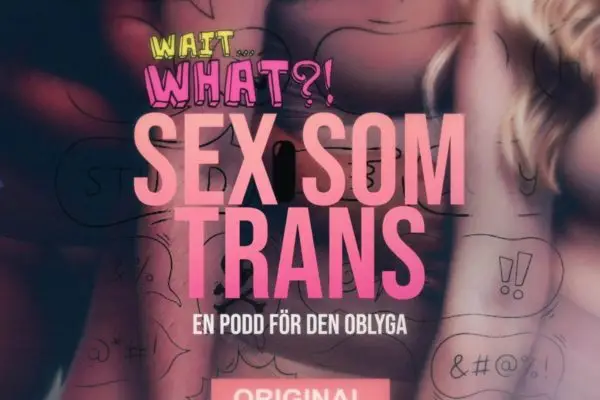I don’t know how I never saw it; One of the tenets of classical biblicism is faithfulness, I mean I even have it tattooed on my body, inked onto my skin so as to never forget. It is a label given to me by the voice of god on top of a mountain in wales. I bucked and fought arguing that whatever I am, faithful is not one of them. I am an adulterer, I think I have been unfaithful in every relationship in my life including or maybe especially my relationship with god. And yet this god comes down and covers my transgression (my queerness) with unlimited, unconditional grace. I couldn’t believe it then and I still struggle to live believing god actually loves me: A deviant, a queer closeted theologian of little consequence.
I decided, at this, to become the name, to live worthy of this faithfulness god has shown me (I even tattooed the hebrew for faithful/loyal, aman, into the back of my neck as a lifelong reminder). However, the more I delve into the grace of this god I realise that gods response was more than just grace, more than just acceptance it was encouragement not to limit myself by a rigid regiment of blinkered existence but to love like godself without limits.
It was as if god reached down and said “neither do I condemn you, I am unfaithful too.”
Could it be?
Let’s for a moment take of our religious glasses and all the cookie cutter phrases we ave been indoctrinated with. Let’s for one moment read the biblical narrative with virgin eyes.
We have this idea, that god could not be unfaithful, partly because “the bible tells me so”, partly because we have this idea that when we say that god “is the same today, yesterday and all days” we think that it means unchangeable. No matter how much the bible narrative paints the picture of a god that changes gods mind and develops. I am the same all my life, I feel instinctively the same today as when I was sixteen, I am still Patrik Olterman, but I have changed to, and I thank god for that. I am not the same Patrik Olterman I was when I was sixteen. Neither is god the same god, I mean god is still god, has always been and will always be, but god also changes, grows in relation to me and everyone else.
God makes a covenant with Abram renaming him Abraham, father of many. God goes on time and time again promising the Abraham descendants fidelity. Yet here I am a gentile, a pagan made Christian, adopted into gods own family by the grace of god. “You will be my people, and I will be your god” the words echo out through time, then later in history, god is unhappy with the relationship and broadens the definition of the covenant. God makes a new covenant where every nation is invited. God has not only turned polyamourous but omniamourous.
Or, how about this. If we strain our senses and sharpen our vision we discern something impossible in the biblical narrative like a palimpsest overwritten with our sacred text, we think we see what we have come to call the holy trinity. The trinity is described as the community of god, a never ending dance where god is complete, satisfied in godself. Never alone, three in one but three non the less. God is love, we say quoting scripture, and use the trinity as proof of this undying, eternal love. But love is agape, fileo, and eros. We just can’t imagine the erotic love of the trinity, entwined, in an endless embrace penetrating each others essence. This perfect community, once balanced with the three sides of love, is our blue print for marriage, or rather for all human relation. Yet for god this perfect union is not enough. God crosses over the boundaries of the blessed trinity, reaches out and creates a world filled with life and passion. Then god chooses to emancipate the earthlings and, oh the undecency, love them with all the agape, fileo and eros that god can muster. God loves me unconditionally, on my level like a sibling, erotically with all gods passion. And then as if this queer transgression is not enough, god invites me to interact and be part of what Paul Young called this circle of submission. But it is of course not only me but every living being is loved in this way. The trinity gives up independence for interdependence and queerly blurrs out the bounadries between godself and creature, between creature and nature, between me and you.
The omniamourous god doesn’t hold back, doesn’t temper love with prudence but impregnates a teenage peasent girl (who is incidentally bethrothed with a man) to fully cross all boundaries so that we may know this god, this passionate love.
Not that there is anything wrong with loyalty or faithfulness. The question is what are we called to be faithful to? Are we to be faithful to a religious system, a new set of laws and doctrines or are we to be faithful to this radical outpouring of omniamourous love?
It’s not that I want to surgically remove my tattoo and replace it with a symbol of promiscuity, pluralism or omniamory. I realise instead that I want to be loyal to this love priority of radical love because sometimes we are even called or compelled by that radical love to be unfaithful and cross boundaries no-one else dares to cross.
- How I became a queer theologian a desert journey
- The centrality of sexuality
- Meeting an adulterous god
- Sex as a sacrament.
- Getting down and dirty with god.
- Who is queer?
- Jesus in drag
- Sex at dawn …
- In god’s queer image …
- The sacrament of coming out of the closet …
- The omniamourous god.
- Marriage is meaningless …
- The big masturbation post





